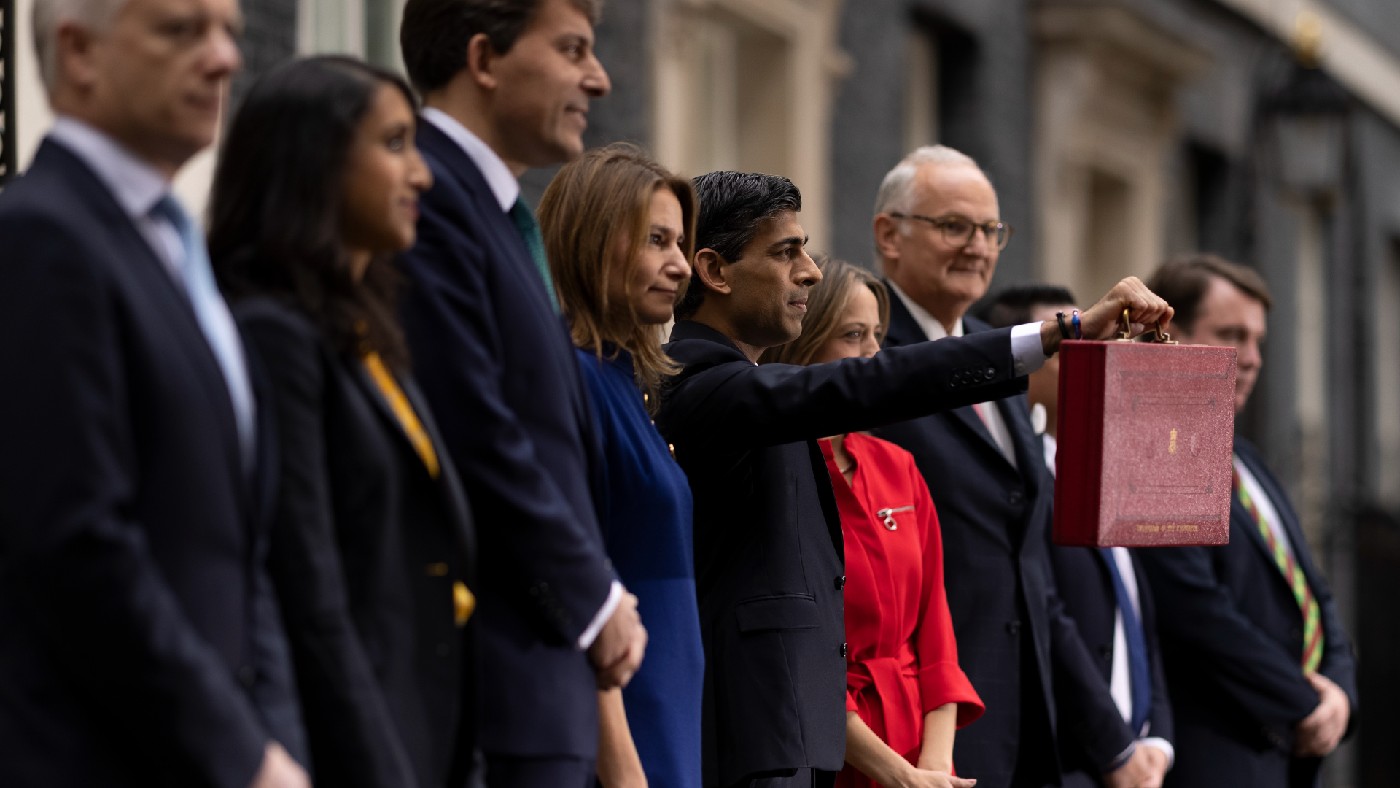Extra funding for the NHS: ‘welcome and badly needed’ or a ‘hefty sacrifice’ of taxpayers’ cash?
Twenty years ago, the NHS accounted for 27% of all day-to-day public service spending. Today, that figure is closer to 40%

A free daily email with the biggest news stories of the day – and the best features from TheWeek.com
You are now subscribed
Your newsletter sign-up was successful
It’s said the NHS is the nearest thing Britain has to a national religion, said Oliver Wright in The Times. If so, its god is demanding increasingly “hefty sacrifices” of taxpayers’ cash.
In the hope of clearing the backlog of 5.6 million people stuck on hospital waiting lists, Chancellor Rishi Sunak has announced £5.9bn in funding for NHS diagnostic tests and operations. That’s on top of the £12bn a year, over three years, that’s meant to come from increased National Insurance payments.
True, the pandemic has put additional strain on the system, but well before that the “health god” was constantly asking for more. Twenty years ago, the NHS accounted for 27% of all day-to-day public service spending. Today, that figure is closer to 40%. Some of that is down to the fact we’re living longer, and to the high expense of improved medical technology. But it’s also the consequence of squandering vast amounts on short-lived NHS reorganisation and the failure to invest during the “austerity” years.
The Week
Escape your echo chamber. Get the facts behind the news, plus analysis from multiple perspectives.

Sign up for The Week's Free Newsletters
From our morning news briefing to a weekly Good News Newsletter, get the best of The Week delivered directly to your inbox.
From our morning news briefing to a weekly Good News Newsletter, get the best of The Week delivered directly to your inbox.
The extra cash is welcome and badly needed, said The Guardian. The trouble is, it’s earmarked for next year, and much of it will go on “buildings and equipment”, whereas it desperately needs to be spent now and on the NHS’s most pressing problem: shortage of staff. “Our second Covid winter” is looming; another surge could endanger pregnant women by overstretching maternity services; senior doctors warn that A&E departments are already “struggling to cope”; it’s thought another 4,000 doctors and 17,000 nurses will be needed just to get through waiting lists.
But throwing money at hospitals won’t address some of the deeper problems behind the nation’s health crisis, said the Daily Mail. It won’t help the hundreds of care homes that may have to close, as demoralised staff leave in droves. It won’t help elderly patients unable to get face-to-face appointments with GPs, who are now threatening industrial action over proposed reforms to their working practices. These potential collapses in care don’t start on hospital wards, even if that’s where vulnerable people inevitably end up.
Here we go again, said The Daily Telegraph: yet another whopping NHS cash injection. Yes, it will be popular at first, but without serious reform, the service will soon demand another such fix.
I don’t begrudge the NHS the extra cash, said Matthew Syed in The Sunday Times. It needs it. We invest far less in healthcare per head than comparable nations. But it also suffers from another major shortcoming: it will not learn from its mistakes. People brave enough to point them out are punished; the whistle-blowing charity Protect finds that 66% of NHS staff who speak up are dismissed or victimised.
A free daily email with the biggest news stories of the day – and the best features from TheWeek.com
It’s well known that systems which are transparent about their failings have far lower costs. Yet, shielded by its “sacred cow” reputation, the NHS seems incapable of admitting that, like any big organisation, it has countless remediable inefficiencies. Only by exposing and testing its weaknesses can we get the world-beating health system that patients, staff and taxpayers all want.
-
 Local elections 2026: where are they and who is expected to win?
Local elections 2026: where are they and who is expected to win?The Explainer Labour is braced for heavy losses and U-turn on postponing some council elections hasn’t helped the party’s prospects
-
 6 of the world’s most accessible destinations
6 of the world’s most accessible destinationsThe Week Recommends Experience all of Berlin, Singapore and Sydney
-
 How the FCC’s ‘equal time’ rule works
How the FCC’s ‘equal time’ rule worksIn the Spotlight The law is at the heart of the Colbert-CBS conflict
-
 Local elections 2026: where are they and who is expected to win?
Local elections 2026: where are they and who is expected to win?The Explainer Labour is braced for heavy losses and U-turn on postponing some council elections hasn’t helped the party’s prospects
-
 How corrupt is the UK?
How corrupt is the UK?The Explainer Decline in standards ‘risks becoming a defining feature of our political culture’ as Britain falls to lowest ever score on global index
-
 Democrats push for ICE accountability
Democrats push for ICE accountabilityFeature U.S. citizens shot and violently detained by immigration agents testify at Capitol Hill hearing
-
 Fulton County: A dress rehearsal for election theft?
Fulton County: A dress rehearsal for election theft?Feature Director of National Intelligence Tulsi Gabbard is Trump's de facto ‘voter fraud’ czar
-
 ‘Melania’: A film about nothing
‘Melania’: A film about nothingFeature Not telling all
-
 Greenland: The lasting damage of Trump’s tantrum
Greenland: The lasting damage of Trump’s tantrumFeature His desire for Greenland has seemingly faded away
-
 Minneapolis: The power of a boy’s photo
Minneapolis: The power of a boy’s photoFeature An image of Liam Conejo Ramos being detained lit up social media
-
 The price of forgiveness
The price of forgivenessFeature Trump’s unprecedented use of pardons has turned clemency into a big business.